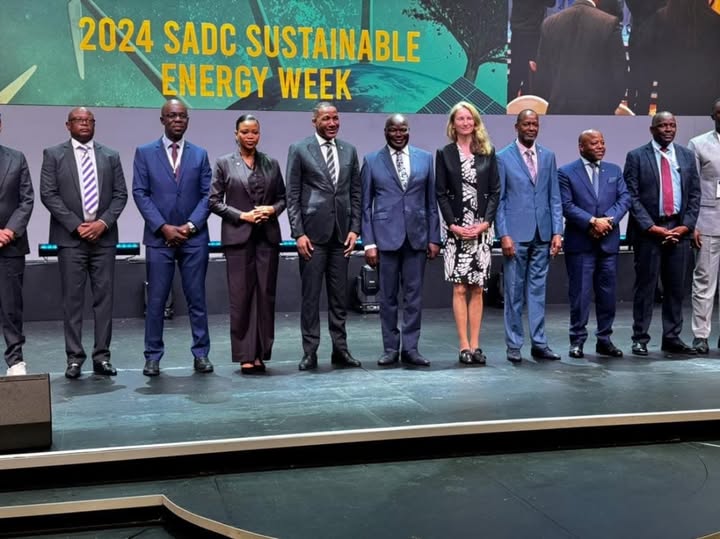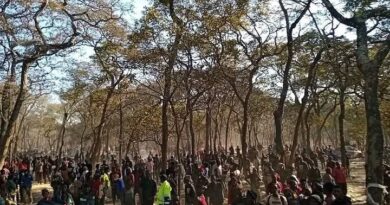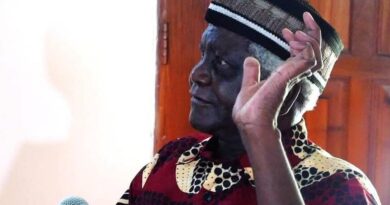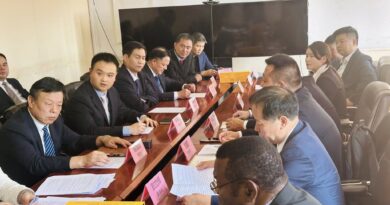SADC Launches Inaugural Sustainable Energy Week to Address Regional Energy Security
The Southern African Development Community (SADC) has officially launched the inaugural SADC Sustainable Energy Week, aimed at accelerating sustainable energy solutions to enhance energy security across the region.
The event, held in Gaborone, Botswana, brings together regional leaders, policymakers, and international partners to discuss strategies for improving energy access and transitioning to renewable energy.
His Excellency Mr. Elias M. Magosi, SADC Executive Secretary, emphasized the critical role of energy security in regional economic development and integration. He acknowledged the Government of Botswana and President Advocate Duma Gideon Boko for hosting and officiating the event, reinforcing the country’s commitment to sustainable energy initiatives.
Themed “Accelerating Sustainable Energy Solutions for an Energy Secure SADC Region,” the week-long event will feature high-level discussions, business-to-business meetings, and policy deliberations focusing on energy financing, grid integration, and renewable energy advancements.
Magosi highlighted the persistent power shortages in the region, exacerbated by inadequate infrastructure and climate change impacts. The region’s energy mix remains heavily reliant on coal (60%), followed by hydropower (24%), while renewable energy sources account for only 10% of electricity generation. Severe droughts have further exposed the vulnerabilities of hydropower-dependent nations.
Electricity access disparities remain a challenge, with some Member States achieving universal coverage while others struggle with access rates below 30%. Magosi called for increased investments in power generation and the expansion of regional interconnectivity, particularly through the Southern African Power Pool (SAPP).
SADC is working on several large-scale energy projects, including the Grand Inga Hydropower project in the Democratic Republic of Congo, the Mpanda Nkuwa Hydropower development in Mozambique, and the Batoka Hydropower project between Zambia and Zimbabwe. Transmission projects such as the Angola-Namibia and Tanzania-Zambia interconnectors are also key priorities to enhance intra-regional power trading.
Magosi urged Member States to adopt innovative financing models to support electrification, particularly in rural areas. He stressed the need for cost-reflective tariffs while ensuring affordability for low-income households. Some countries have already introduced near-zero connection fees to improve electricity access.
SADC faces an $18 billion financing gap for energy infrastructure projects outlined in its Regional Infrastructure Development Master Plan (RIDMP) Short-Term Action Plan (2023-2027). Magosi called for stronger support from international cooperating partners, including the International Renewable Energy Agency (IRENA), the United Nations Industrial Development Organization (UNIDO), and the Austrian Development Cooperation (ADC).
The SADC Secretariat is also advocating for the ratification of the SADC Regional Development Fund (RDF) and the Inter-Governmental Memorandum of Agreement on the establishment of the SADC Centre for Renewable Energy and Energy Efficiency (SACREEE), which would further drive sustainable energy initiatives.
Magosi assured stakeholders that resolutions from the event would lead to tangible actions rather than being mere discussions. The outcomes will be reviewed at the next SADC Sustainable Energy Week, scheduled to be hosted by Zimbabwe in 2026.
“As a region, we must measure our progress and hold ourselves accountable to ensure that these engagements translate into impactful projects and lasting energy solutions,” he concluded.
The inaugural SADC Sustainable Energy Week is expected to set the foundation for transformative energy policies and investment frameworks that will shape the future of energy security in the region.



